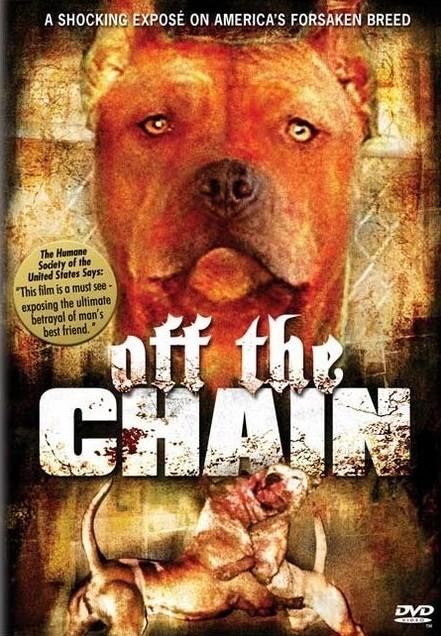GV Humane Society unleashes truth about dog fighting

Courtesy Photo / imdb.com Off the Chain
Apr 2, 2012
The adage “man’s best friend” applies to most dogs, but for many people, pit bulls are in a class of their own.
As a part of the Human Society of Grand Valley State University’s pit bull awareness month, the documentary “Off the Chain” was shown in the Kirkhof Center on Thursday to enlighten students about the cruelties and realities of underground dog fighting.
“This month we strive to raise awareness,” said Kristina Pepelko, president of HSGV. “Dog fighting is still very much an issue, though it’s all underground and difficult to spot.”
The American Society for the Prevention of Cruelty to Animals estimates that dog fighters in the U.S. number in the tens of thousands.
“Dog fighting is happening all over,” said Jill Fritz, Michigan’s State Director for the Humane Society. “It crosses socioeconomic lines. It’s in urban areas, suburban areas — it happens here, in Michigan. It happens in nearby counties.”
Last summer, legislation was proposed that would have banned the controversial and oft-maligned breed, which has earned a reputation for violence due to its popularity among dog fighters, from the state. Under the bill, which was never discussed in the state legislature, all Michigan pit bulls would have been sterilized within four years of the bill’s passage; after 10 years, owners would have been required to get rid of their pit bulls or face 93 days jail time.
While pit bulls have a reputation as hurtful, snarling beasts who aim to rip opponents to shreds, animal rights activists say those actions are a result of nurture, not nature. These animals are bred and forced into situations where they fight, often to the death. Under normal circumstances, activists say, they are loving, loyal and safe for households.
The documentary, which lasted roughly an hour, showed graphic scenes of dog fights and interviewed “dog men” who raised and bet on their pit bulls to win fights. Though these disturbing images were uncomfortable for the audience of more than 50, the film uncovered many truths that are not widely publicized.
Attendants saw images of dogs missing eyes, legs or ears; attached to heavy chains and living in barrels in cold weather; trained on homemade treadmills; shot up with steroids or electrocuted because of their failure to win a match. The audience remained silent throughout, eyes fixed to the film.
“I wasn’t aware that is was so widely done,” said Erika Richardson, a film and video major at GVSU. “I found it astounding that people can be so cruel to their animals.”
After the documentary was complete, Joe Dainelis, animal control supervisor for the Kent County Animal Shelter, and Fritz, served as a panel for discussion. They shared stories about their personal experiences busting dog fighters, presented statistics about the prevalence of dog fighting in our neighborhood and relayed advice about what the community can do to help raise awareness and stop dog fighting.
“Make yourself aware, educated,” Dainelis said. “You now know more than you did before, you need to make others aware as to what it is and how to report it.”
HSGV also hosted a fundraiser on Saturday, Pit Bowl 2012, at Lincoln Lanes. For $20, participants got 3 games, shoes, food and drinks. All proceeds from the event went to benefit Muskegon’s Pound Buddies Animal Shelter and Adoption Center and the Humane Society of the U.S.’ End Dog Fighting Campaign.






















